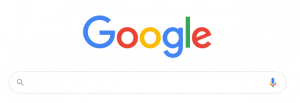The Australian government is proposing a new media code to ensure that the tech giants – Google and Facebook – pay for news content. However, at the recent Senate enquiry in January, Google declared the current requirements as unworkable and threatened to close down their search engine to the Australian market. But would this really happen, and what would be the consequences if it did?
There has been plenty of news coverage and comment about the stoush between Google and the Australian government regarding the proposed new laws since Google made this threat. Although it was said to be the worst-case scenario, the possibility was used as a negotiating position yet it’s very unlikely that Google would withdraw from a lucrative advertising market that is estimated to be worth more than $4 billion a year.
 Publishers around the world have long complained that Google uses their content for free yet they receive no income. That’s why the Australian government is taking a world-leading position in trying to develop a new law that would require Google and Facebook to pay for the use of this content, and provide publishers with a compensatory financial package. The proposed law states that Google sets up commercial agreements with every news organisation, or enters a forced arbitration process to agree a suitable fee.
Publishers around the world have long complained that Google uses their content for free yet they receive no income. That’s why the Australian government is taking a world-leading position in trying to develop a new law that would require Google and Facebook to pay for the use of this content, and provide publishers with a compensatory financial package. The proposed law states that Google sets up commercial agreements with every news organisation, or enters a forced arbitration process to agree a suitable fee.
Google says this is “unworkable”, partly because it’s an open ended financial burden and one that could be replicated around the world if the Australian law in introduced in the current format. They also say that paying publishers for links and visits goes against the whole basis of a free and open internet. They have proposed a separate ‘News Showcase’ product as an alternative model and a way to provide some financial payment to publishers.
The discussions have some way to go yet, and Prime Minister Scott Morrison has also had direct talks with Google boss Sundar Pichai to try to lower the temperature of the debate. Hopefully a compromise will be reached that is acceptable to both parties and, like many other businesses, most publishers gain a lot of online traffic from Google and Facebook which they may not otherwise get.
So imagine if Google did pull search from Australia. This would assume that other services like YouTube and Gmail remain, but what about Google Maps or other search based services? And would Google really want to lose that advertising revenue which would be much higher than any financial payments made to publishers?
People would still need to search the web, so Bing would most likely be the primary alternative to fill the void. Bing has already made overtures to the government and would be willing to agree to the new media code (which helped to lessen Google’s argument against it!). The Bing experience and interface is much the same as Google although the quality of results may differ, and users may also start using other alternative search engines that currently have a minor share of the market.
For businesses, if Bing became the primary search engine in Australia, a lot of the SEO techniques used for Google would still apply, so there may not be a noticeable change in ranking visibility. Also the Bing Ads service is designed to mirror Google Ads, so this would easily fill the gap and drive new search visits to business websites. There would certainly be a period of disruption and adjustment for searchers and search marketers alike, and the question would be if this became a long term change, or whether Google or the government relented and the situation returned back to near ‘normal’.
Google is using all their platforms to argue their case and this still has some way to run. It certainly shapes up to a fascinating and intriguing scenario, but one that we believe won’t ultimately happen.
If you’d like to discuss this issue and the possible implications for your search engine marketing strategy, please get in touch.
